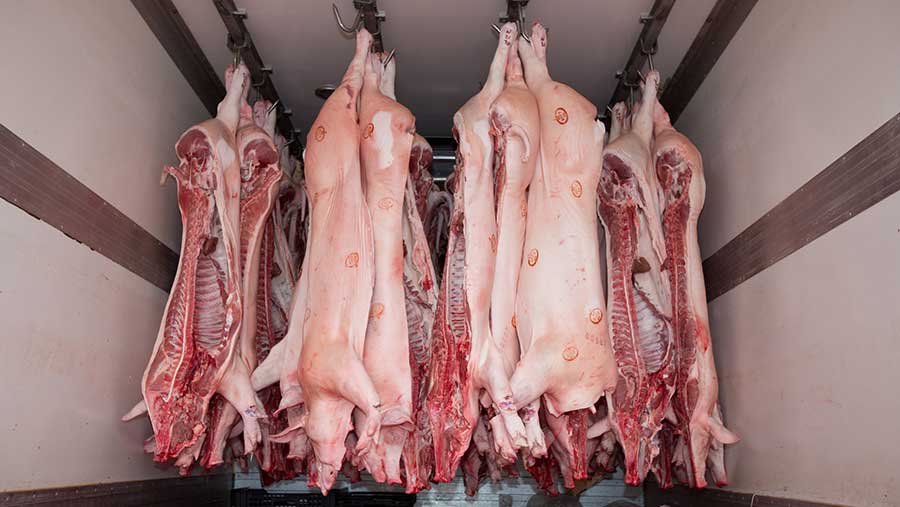Hard Brexit would decimate EU meat imports – report
 © Tim Scrivener
© Tim Scrivener A hard Brexit would be catastrophic for the EU beef and pigmeat sectors, costing a combined €4.7bn (£4.1bn), the European Livestock and Meat Trades Union (UECBV) has warned.
The union has released a 30-page report – Crisis: The EU Meat Industry in a Hard Brexit scenario – analysing what could happen if Britain left the EU without a negotiated trade deal.
The report suggested export costs would spiral because of additional custom checks, tariff barriers and health inspections.
Those extra costs would see a dramatic decline in exports from the EU to Britain, the UECBV predicted.
See also: Trading with China – opportunities for livestock producers
According to its calculations, beef exports to the UK could drop by 84% and sales of pigmeat to Britain could fall by 48%.
The resulting supply glut in continental Europe would put prices under pressure, with values down by 7-8%.
That in turn would cause a total loss in value of €2.3bn (£2bn) for the pig sector and a further €2.4bn (£2.1bn) for the beef industry – putting 32,000 jobs at risk across the EU.
“The magnitude of shock of a hard Brexit would be significantly greater than the industry crisis created by the Russian food import ban in 2014 and it would be much more difficult to find alternative markets for diverted products,” the report said.
In addition, there will be major disruption to modern fresh meat and just-in-time trade flows that are underpinned by sophisticated logistics systems, creating further losses for the meat sector and depriving consumers in the UK of fresh meat supply, it warned.
UECBV chairman Philippe Borremans described the hard Brexit option as “catastrophic for industry across Europe and UK”.
“The findings contained in this report confirm our worst fears: A hard Brexit would send shockwaves through the whole European meat industry, destroying jobs, increasing consumer prices and devastating the livelihoods of small business owners working in our sector,” Mr Borremans said.
He added that the possible scale of the crisis was too great to ignore and he implored policymakers to act on recommendations put forward by the UECBV to avoid the situation.
UECBV – avoiding hard Brexit trade implications
- A timely and sufficiently long transitional period to allow businesses to adjust to new arrangements
- A future trading relationship that creates minimal burden for business, especially SMEs, and maintains current trading conditions as much as possible
- Ensure continued regulatory convergence between UK and EU
- Implement market support mechanisms including increased market access, internationally simplified transit systems and vital investment in port facilities
